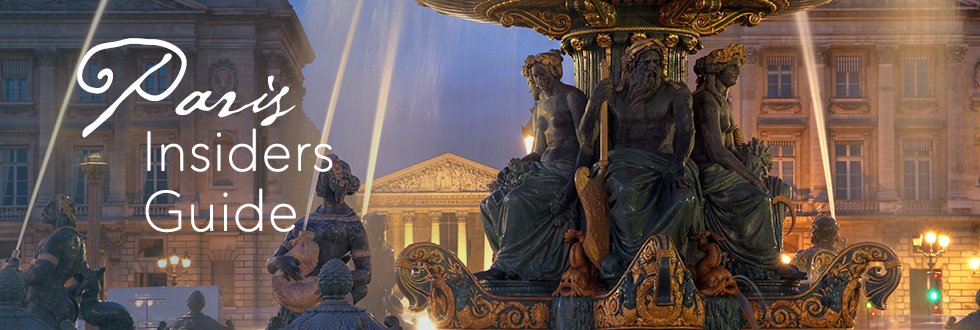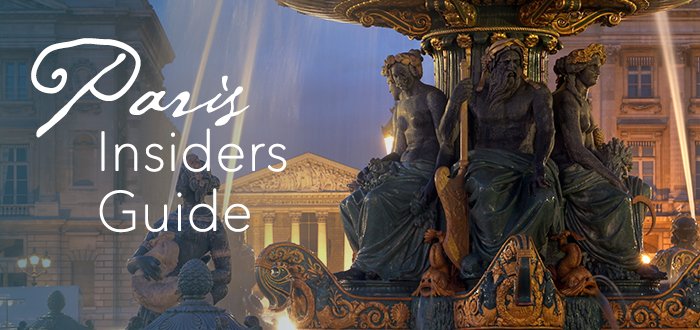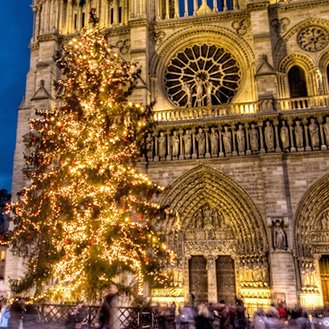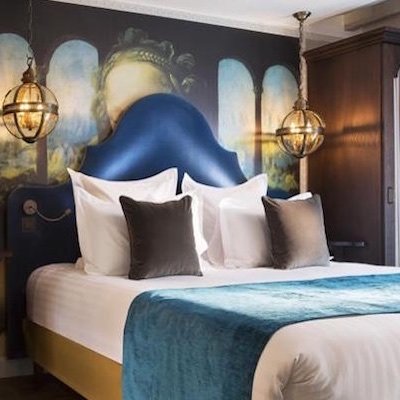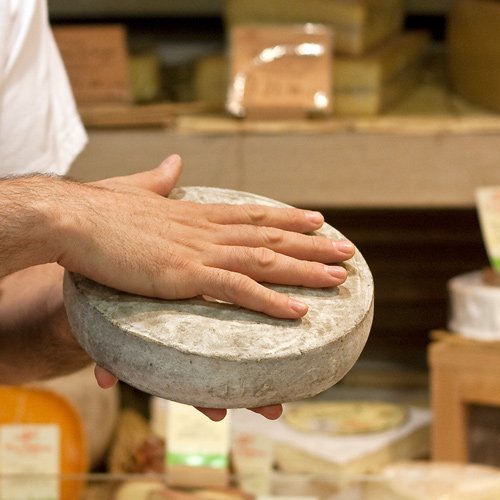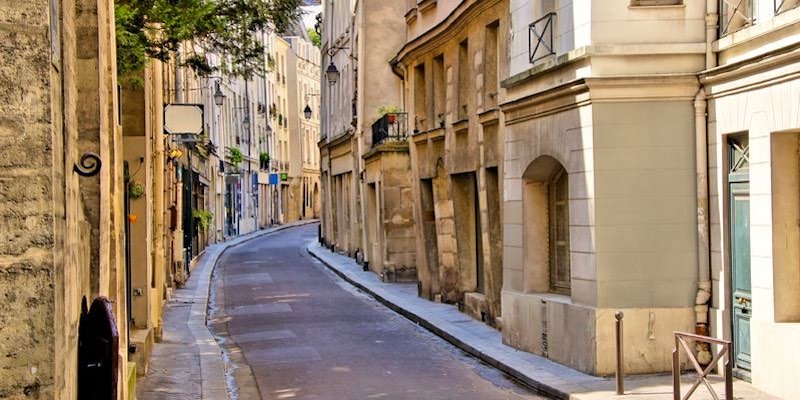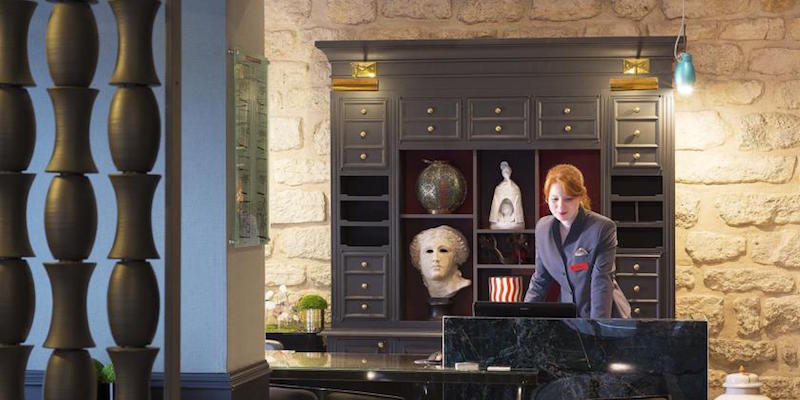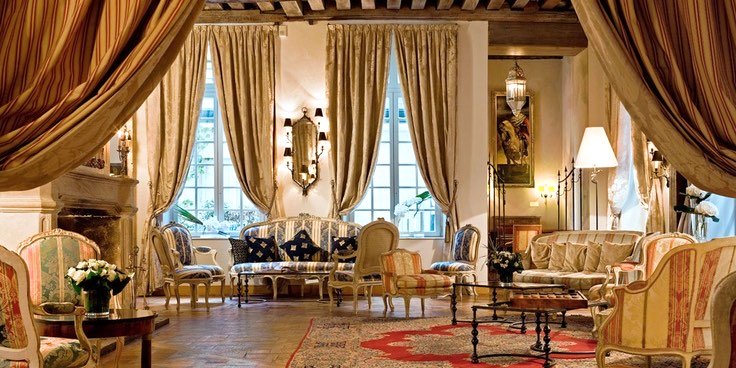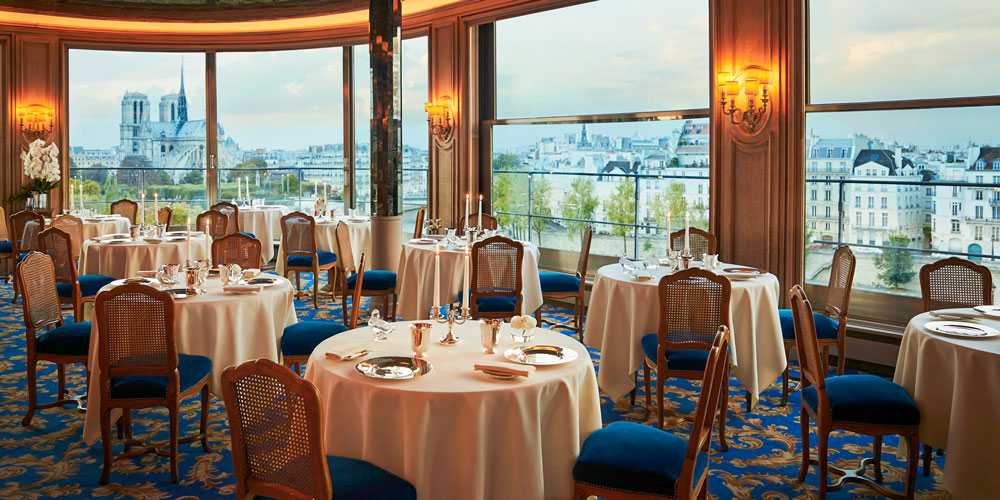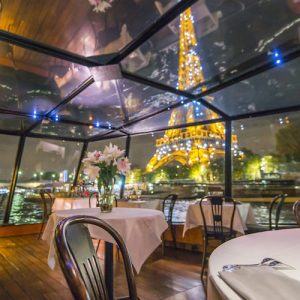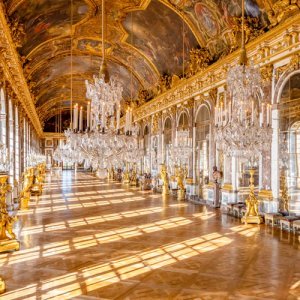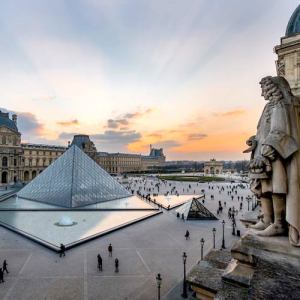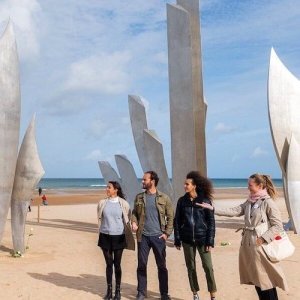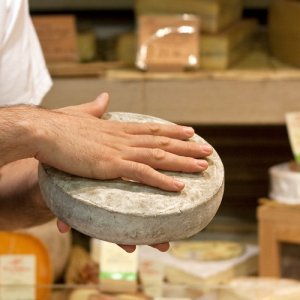The Latin Quarter Of Paris – Where Medieval Meets Modern
The Latin Quarter's winding, cobblestone streets remind us of what the medieval city of Paris looked like, when the original scholars of the Sorbonne university roamed the streets speaking Latin. Built by the Romans, it is, in fact, the oldest district in Paris. Today, the Latin Quarter (the 5th Arrondissement) retains its ancient feel as it was largely spared the sweeping renovations of Baron Haussmann. From the food stalls on Rue Mouffetard to the Jardin des Plantes, the Pantheon, and the historic Cluny Museum, there's a lot to see and do in the Latin Quarter.
![]()
Our Top-Rated Latin Quarter Experiences
1. Dinner & Show at Paradis Latin Cabaret… The most popular evening in the Latin Quarter.
2. Private Latin Quarter Discovery Tour… Your own private walking tour.
3. Gourmet Food Tour of the Latin Quarter… Taste your way through the Left Bank
4. The 16 Best Things to do in the Latin Quarter… All in one list!
5. Our Top-Choice Latin Quarter Hotel… Stay at charming Hotel Monge.
23 Great Things About the Latin Quarter of Paris
1. The Pantheon
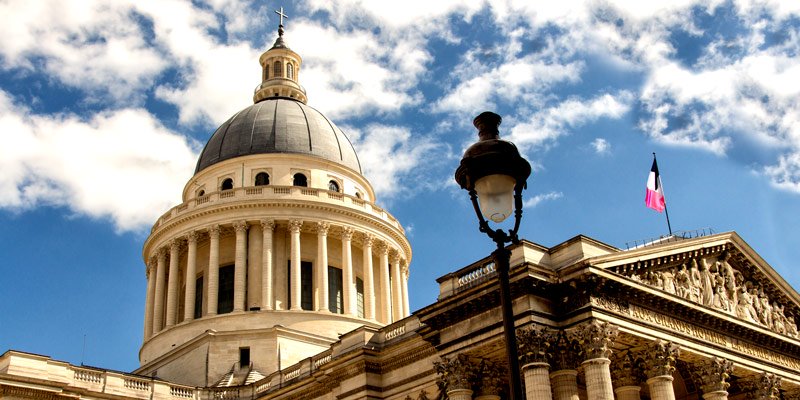 Dome of the Pantheon, photo by Mark Craft
Dome of the Pantheon, photo by Mark Craft
This magnificent Paris landmark is a monument and mausoleum to France's greatest men (and two women). Originally built as a church in 1758, it was converted to a shrine to the "heroes of France" during the French Revolution. The exterior was modeled after the Pantheon in Rome and it's worth a detour to explore inside. It's where Foucault first demonstrated his famous pendulum. An excellent way to see & learn about the Pantheon is on a private walking tour.
![]()
Discover What's On When You're Here...
• January... |
• February... |
• March... |
• April... |
• May... |
• June... |
• July... |
• August... |
• September... |
• October... |
• November... |
• December... |
Discover What's On When You're Here
• January...
|
• February... |
• March... |
|---|---|---|
• April... |
• May... |
• June... |
• July... |
• August... |
• September... |
• October... |
• November... |
• December... |
2. Hotel Monge
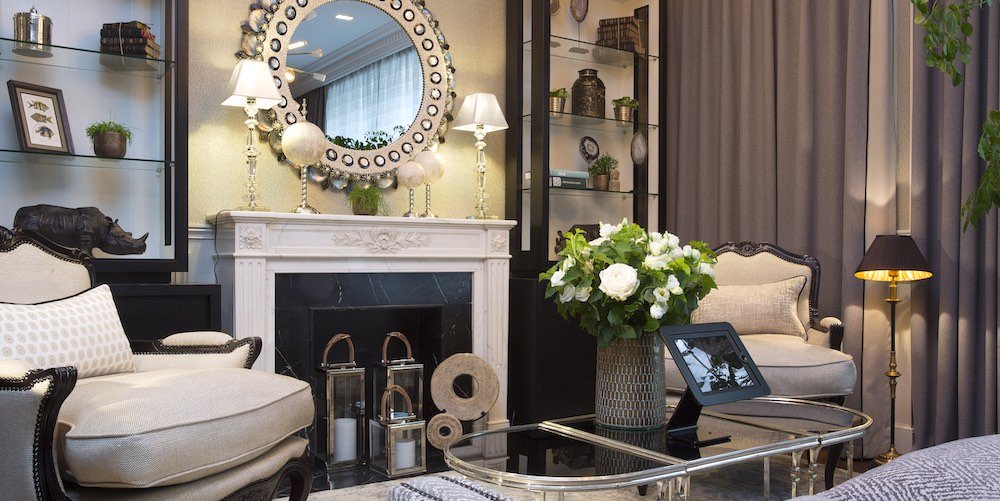 The lobby at Hotel Monge: elegance in every detail
The lobby at Hotel Monge: elegance in every detail
Our top-rated hotel in Paris, Hotel Monge, is perfection in many ways — from the welcoming salon replete with fresh flowers to the splendid service to the fantastic finishes in the rooms. Then, there's the location. Steps from two metro stops and situated in the heart of the Latin Quarter on Rue Monge, a classic Parisian street filled with boulangeries, and wine shops.
3. Latin Quarter Discovery Tour
We like spending a couple of hours to get a real feeling for a neighborhood, and that's true for this historic quartier. Led by a professional guide, this walking tour takes you to the very heart of medieval Paris. Learn about the many layers of the Latin Quarter — historic monuments and classic architecture as well as the hottest jazz clubs, nightclubs, cocktail bars, and hip restaurants. You'll see the bookstores, the Pantheon, the Sorbonne, Jardin du Luxembourg, and the best of the district.
![]()
Experience the Splendor Of Versailles
|
Versailles with Priority Access + Gardens |
Half-Day, Skip-the-Line Tour of Versailles |
|
Versailles with Priority Access + Gardens |
4. Hotel Les Dames du Panthéon
You'll love the mix of antique furniture, French fabrics, period woodwork, exposed beams, as well as the recent upgrades in this romantic, boutique hotel. And, if you book a superior room, you'll be rewarded with an dazzling view of the Pantheon, with Sacre-Coeur in the distance. Added bonus — all rooms have air conditioning.
5. Paradis Latin
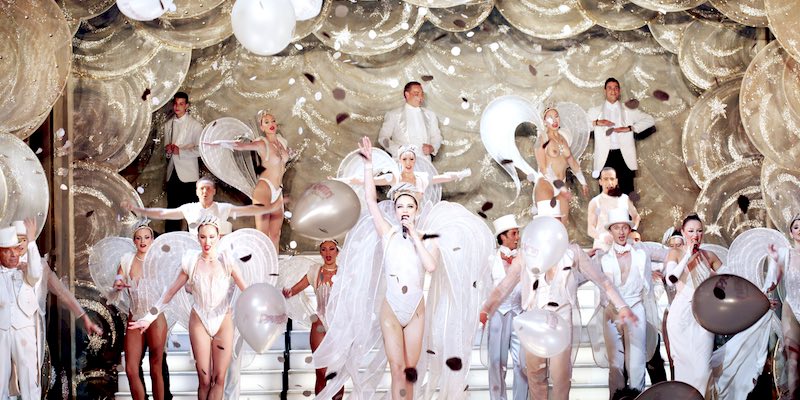 The spectacular finale at Paradis Latin
The spectacular finale at Paradis Latin
The Latin Quarter, famous for bars and cabarets, is also home to Paradis Latin, the oldest cabaret in Paris. It was founded by Napoleon in 1802 (or so they say) and then updated and re-designed by Gustave Eiffel in 1889. Today, the show has been modernized once again, it's smart, sexy & fun yet retains its classic old-school Paris roots. Added bonus: the menu was created by Michelin-star chef Guy Savoy, making it the best dinner show in all of Paris.
6. The Best Places to Stay in the Latin Quarter
The Latin Quarter is not only a wonderful place to stroll, to sit in sidewalk cafes, and take in a cabaret. It turns out it's also one of the best places to stay while you're in Paris. The district is so… cosy, and oh-so Parisian. Even better, we've already found the best hotels in the quartier for you — hotels that not only meet our criteria, but that travelers have loved. In fact, all of these hotels have been awarded our highest ratings — from "Highly Rated" right up to our supreme accolade of "Superb-Plus". Be sure to check our reviews.
![]()
Romantic Dinner Cruises In Paris
|
VIP Dinner Cruise with Bateaux Parisiens |
Dinner Cruise by Maxim's of Paris |
|
VIP Dinner Cruise with Bateaux Parisiens |
7. La Sorbonne
 One of the Sorbonne's buildings, photo by Mark Craft
One of the Sorbonne's buildings, photo by Mark Craft
It's the oldest university in France and one of the most famous place of higher learning in the world. Founded in 1257, you might not know that the Collège de Sorbonne is actually a collection of thirteen separate universities. Three of them have Sorbonne in their names — Panthéon-Sorbonne, Sorbonne Nouvelle, and Paris-Sorbonne.
As for us mere mortals who are neither students nor intellectuals, we can admire the Beaux Art buildings along the Boulevard Saint-Michel or enjoy a glass of wine at one of the sidewalk cafes frequented by students and faculty.
8. Latin Quarter Gourmet Food Tour
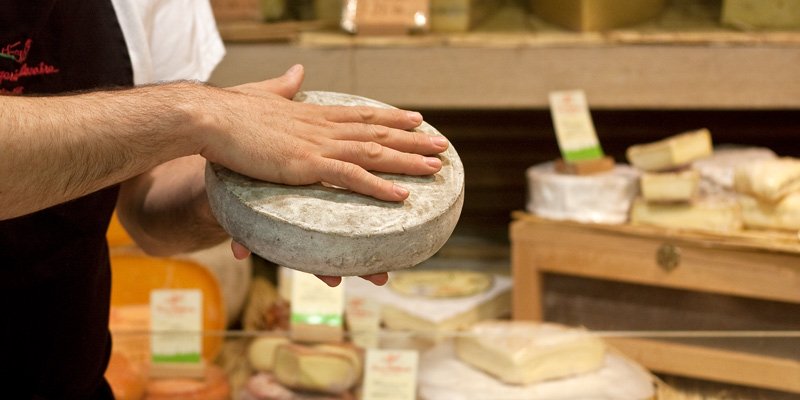 In a cheese shop, photo by Mark Craft
In a cheese shop, photo by Mark Craft
The Latin Quarter isn't just about history and museums, it's also about food, as Julia Child and thousands of other visitors before and since have discovered. In fact, in the shops and markets of the Latin Quarter you can find the best foods France has to offer.
That's why we like this food tour that gets you deep into the culinary culture of the quartier as you follow a food-expert guide to shops and markets. Learn how these specialties are produced, how to choose them, and how to prepare your own gourmet recipes. This semi-private tour accommodates a maximum of 8 people, so book early.
9. Hotel des Grand Hommes
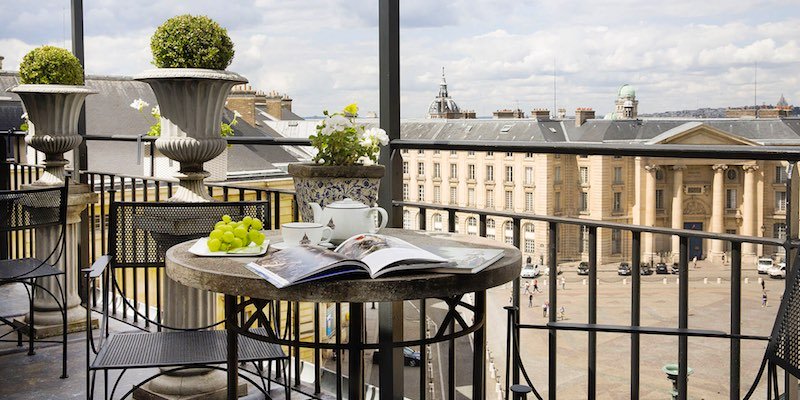 Room with a view at Hotel des Grand Hommes
Room with a view at Hotel des Grand Hommes
There are good reasons this romantic Latin Quarter boutique hotel is an old favorite. The location can't be beat — directly across from the Pantheon. Travelers rave about the friendly staff, the classic interior design and the excellent views. You're close to so many must-see places including Jardin du Luxembourg, Rue Mouffetard, and the famous English-language bookstore, Shakespeare & Company.
![]()
Experience The Left Bank Of Paris
|
Dinner & Cabaret at Paradis Latin Theater |
Chocolate & Pastry Walking Tour of Saint-Germain-des-Prés |
|
Chocolate & Pastry Walking Tour of Saint-Germain-des-Prés |
10. Shakespeare & Company
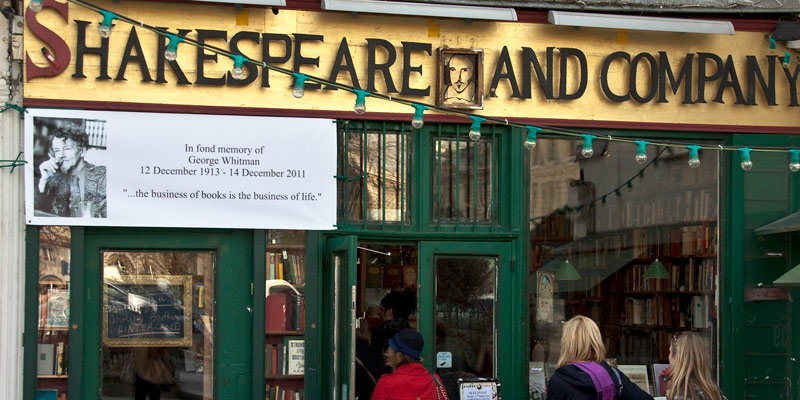 Shakespeare & Company, photo by Mark Craft
Shakespeare & Company, photo by Mark Craft
A Paris institution, this independently-owned English bookstore was opened in 1919 by American Sylvia Beach. She ran it as a casual bookstore and boarding house for up-and-coming writers. Ernest Hemingway wrote about it his memoir, A Moveable Feast. World War II crashed into Paris and the bookstore closed during the Nazi occupation. Then, in 1951, another young American, George Whitman, re-opened the store and infused new energy with a new location in the Latin Quarter.
Now Whitman's daughter Sylvia Beach Whitman is in charge. She runs it much like it was before — as a bohemian hangout for writers and book lovers. Plan to spend time browsing the jumbled book shelves or drop in next door at the cafe.
- 37 Rue de la Bûcherie, 75005
- Website…
11. Musée National du Moyen Age
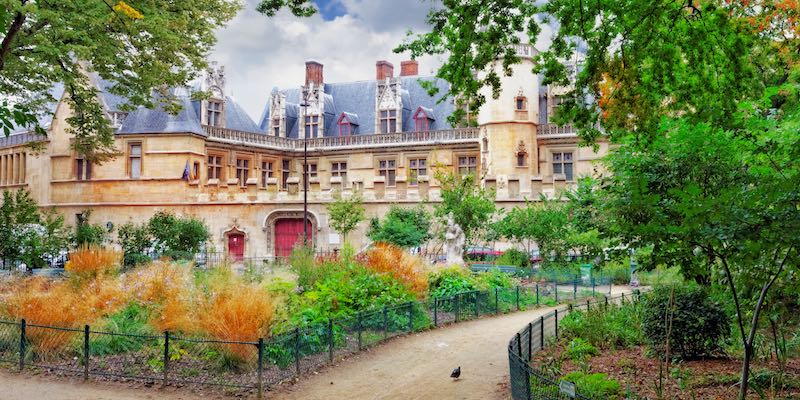 Musée National du Moyen Age, AKA Cluny
Musée National du Moyen Age, AKA Cluny
Paris is filled with many hidden treasures and this Museum of the Middle Ages is certainly one of them. Away from the tourist bustle, this small gem of a museum is dedicated to the Middle Ages (not yours, but that epoch in history). One of the many highlights is the tapestry collection, including the über-famous La Dame a la Licorne (The Lady and the Unicorn). This six tapestry series was woven in Flanders from wool and silk using designs from Parisian life of the 1500s.
Other must-sees are the Roman-Gallo baths from the 3rd century, the Gothic ivories, sculptures, artwork and stained glass windows. Often referred to as the "Cluny", its name comes from the original building, which was the Cluny monastery. After you've exhausted yourself admiring the tapestries, slip outside and sit quietly in the peaceful garden.
12. Jardin des Plantes
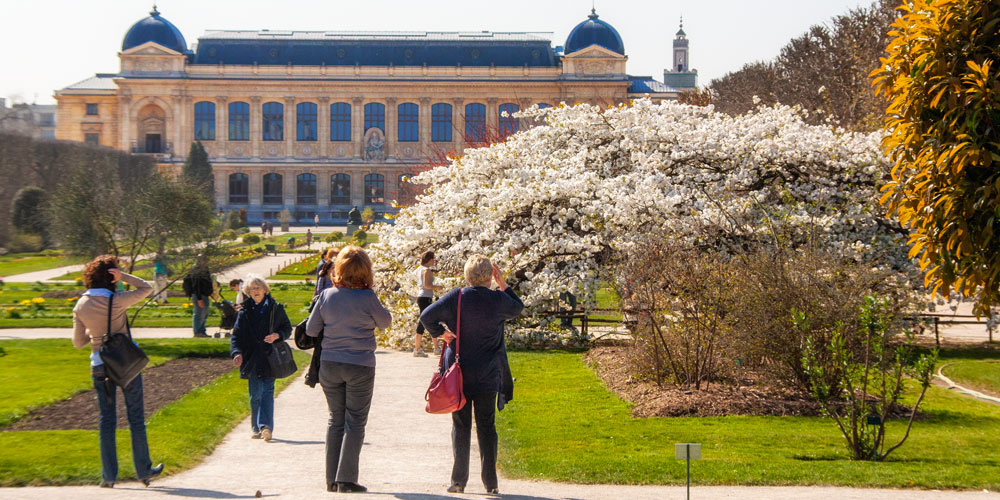 Springtime in the Jardin des Plantes, photo by Mark Craft
Springtime in the Jardin des Plantes, photo by Mark Craft
During the 17th century, the Jardin des Plantes (botanical garden) was used to grow medicinal herbs for royalty. It was originally called the Jardin du Roi (The King's Garden). Today, we consider it a Paris hidden gem with lush gardens, pathways, benches, the zoo, and a collection of museums all at one address. The gardens boast 4,500 different plants in its alpine garden, rose garden, and Art Deco winter garden. There are also three large greenhouses; one built in the 1800s is a marvelous tribute to the period glass and metal architecture.
It's free to enter the gardens but there is a fee for the zoo and Natural History museum. We think it's the perfect place to take your children. You can easily spend the day here, dividing your time between all of the museums, gardens, zoo, and open areas.
![]()
Skip the Lines at the Eiffel Tower
|
Eiffel Priority-Access Tours |
Eiffel Tower Tour to Level 2 or 3 |
|
Eiffel Priority-Access Tour |
13. The Zoo at Jardin des Plantes
 Red panda at the ménagerie, photo by Mark Craft
Red panda at the ménagerie, photo by Mark Craft
The French Revolution is responsible for many things and this wonderfully old-fashioned zoo, the second oldest in the world, is one of the more unusual. It was a "thing", a status symbol, for French royals to keep exotic animals on their estates. After they lost their heads (the royals, not the animals), the menageries needed a home.
One of those royal estates was Versailles. In 1793 animals from the king's ménagerie were transferred here to the Jardin des Plantes and the zoo was begun. What makes this zoo such a Paris treat is that some of the original green-glass exhibit cases from the 19th-century are still in use; places where the snakes, tortoises and other reptiles make their homes. Also of note are the adorable red pandas found in an outdoor habitat.
- Jardin Des Plantes, 75005
- Website…
14. Natural History Museum
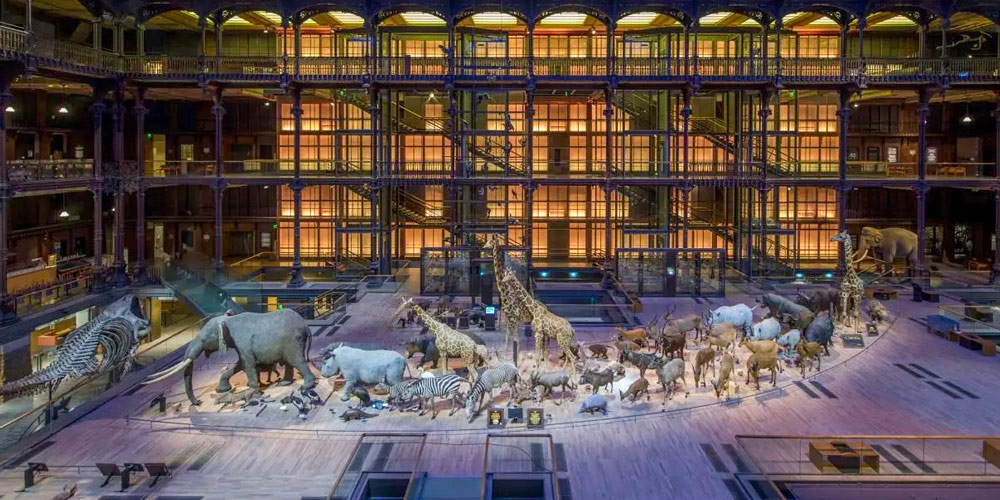 The Grande Gallery of Evolution, photo from Muséum national d'Histoire naturelle
The Grande Gallery of Evolution, photo from Muséum national d'Histoire naturelle
It's called the Natural History Museum (Muséum national d'Histoire naturelle), but it is in fact a handful of museums located in the Jardin des Plantes and elsewhere — the Gallery of Mineralogy (Galerie de Mineralogie et de Geologie), the Gallery of Paleontology (birds, dinosaurs, prehistoric animals), the ménagerie in the Jardin des Plantes, and the Grande Gallery of Evolution.
This collection of museums is the place to take children to see all things animals. Plan to spend at least three hours here, with a special stop at the Galeries des Enfants, an interactive science museum designed with children in mind.
- 57 Rue Cuvier, Jardin des Plantes, 75005
- Website…
15. Institute du Monde Arabe
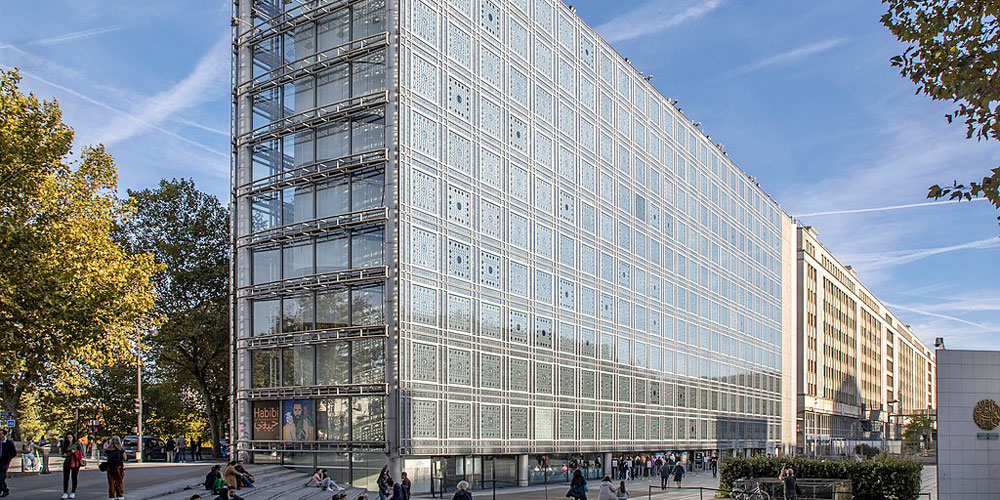 Institute du Monde Arabe, photo Wikimedia by Arthur Weidmann
Institute du Monde Arabe, photo Wikimedia by Arthur Weidmann
The Institute of the Arab World explores the scientific and cultural contributions of Arabs throughout history. The building itself is worth a visit. The contemporary structure, designed by Jean Nouvel and completed in 1987, features an exterior wall of photosensitive apertures, which open or close depending on the light level, paying homage to the traditional Moorish screen. It's a bit of a gimmick, but an interesting experiment nonetheless.
Here you will find temporary exhibitions as well as permanent collections, a library that features a spiral tower of 100,000 books, and a peaceful interior courtyard.
- 1 Rue des Fosses Saint-Bernard, 75005 Paris
- Website…
![]()
Our Most Popular Day Trips from Paris
|
Spend a Day in the Champagne Region |
Visit the Historic D-Day Beaches |
|
Visit the Historic D-Day Beaches |
16. Musée Curie
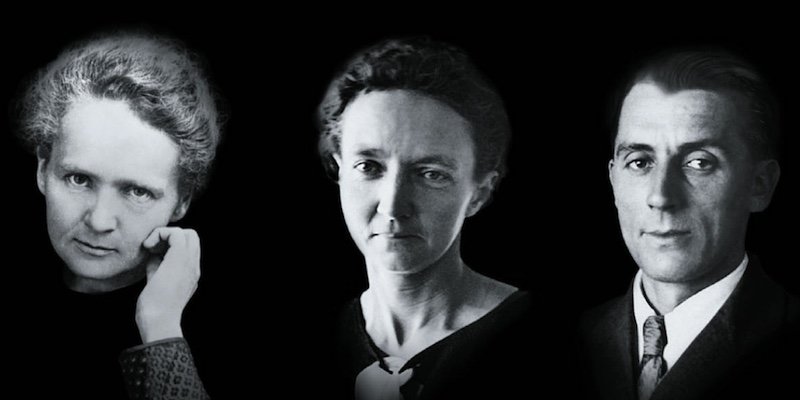 Nobel Prize winning members of the Curie family, with Marie in the center
Nobel Prize winning members of the Curie family, with Marie in the center
This fascinating free museum is housed in the building where Marie Curie worked and made her remarkable discoveries about radioactivity. In case you've forgotten your French scientific history, Marie Curie was the first woman to win a Nobel Prize, the first person to win two Nobel Prizes, the first woman to become a professor at the Sorbonne, and one of only two women to be entombed in the Pantheon. Unfortunately she died young (at age 66) due to exposure to radiation during her experiments.
But the awards didn't stop with Marie. Husband Pierre, their eldest daughter Irène and her husband Frédéric Joliot-Curie all received a Nobel Prize as well. Although the subject matter sounds geeky, the museum is filled with interesting antique scientific instruments and there is a wonderful small garden to pause and think about how Marie Curie and her family changed the world.
- 1 Rue Pierre et Marie Curie, 75005
- Website…
17. Rue Mouffetard – Iconic Market Street
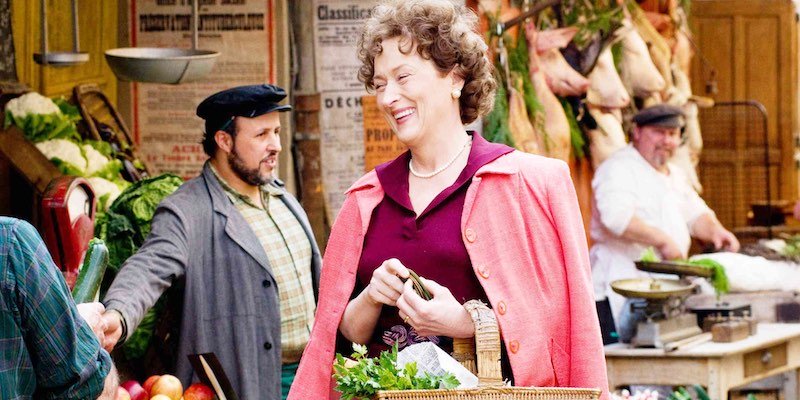 Julia Child, as portrayed by Meryl Streep, shopping on Rue Mouffetard
Julia Child, as portrayed by Meryl Streep, shopping on Rue Mouffetard
Julia Child's favorite food market is still as bustling as it was in the 1950s, and for hundreds of years before that. (You can see Meryl Streep shopping here in Julie and Julia.) If you want to see the freshest and most bountiful displays, arrive in the morning. The vendors generally set up by 9 AM, close for lunch and reopen at about 2 PM. The Sunday market is a vibrant affair, but be warned: it closes for Sunday lunch and doesn't reopen until Tuesday.
Start your journey on the north end of Rue Mouffetard near the Pantheon and walk south with Eglise Saint-Médard as your final destination. If you want to have an impromptu picnic with your shopping bag loaded with cheeses, baguette, ripe tomatoes, and cured meats, lay your blanket down in the shade of Square Saint Medard.
![]()
The Highest-Rated Paris Activities
|
Cheese & Wine Tasting in a Paris Cellar |
VIP Dinner Cruise with Bateaux Parisiens |
|
VIP Dinner Cruise with Bateaux Parisiens |
18. Grande Mosquée de Paris
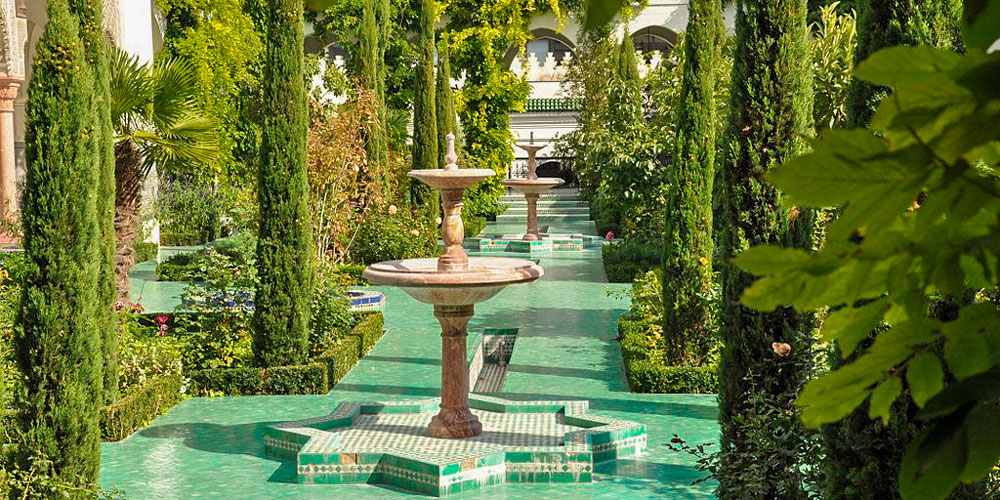 Fountains in the gardens of the Grande Mosquée, photo Wikimedia by Marc Cooper
Fountains in the gardens of the Grande Mosquée, photo Wikimedia by Marc Cooper
It's the largest Islamic place of worship in Paris. Founded in 1926, the Grande Mosquée was a tribute to the Muslim soldiers from French colonies who died in World War I. During World II the mosque became a secret refuge for Algerian and European Jews trying to escape the Gestapo. Many escaped using Muslim birth certificates to guarantee safe passage out of Nazi-occupied France. Today, the mosque welcomes guests to enjoy the architecture, the peaceful gardens, the hammam spa, and the popular tearoom and restaurant.
- 2bis Place du Puits de l'Ermite, 75005
- Metro – Place Monge.
- Website…
19. Boulevard Saint-Michel
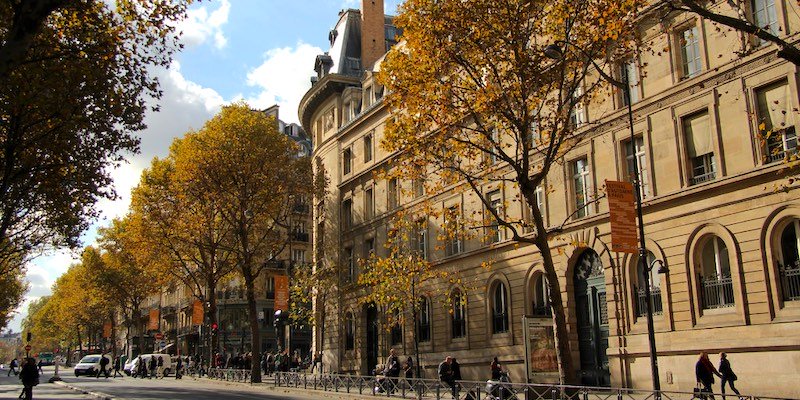 Buildings along Boulevard Saint-Michel, photo Flickr
Buildings along Boulevard Saint-Michel, photo Flickr
Boulevard Saint-Michel is the only example of Baron Haussmann's wide boulevards found in the Latin Quarter. In fact, there are only two of these major thoroughfares on the Left Bank — one is Boulevard Saint Michel (5th Arrondissement), the other is Boulevard Saint-Germain (mostly in the 6th Arrondissement). Start at Pont Saint Michel and the place which bears the same name and continue south past the Sorbonne, the Jardin du Luxembourg, and end at Place Camille Jullian.
The tree-lined boulevard is a boundary between the two arrondissements — the odd numbered buildings belong to the 5th and the even numbers to the 6th. Today, it's where you'll find many shops, cinemas, and cafes. Veer off the major boulevard to the east and you'll be back in medieval Paris, with winding, small streets we associate with the Latin Quarter.
20. Latin Quarter Metro & RER Stations
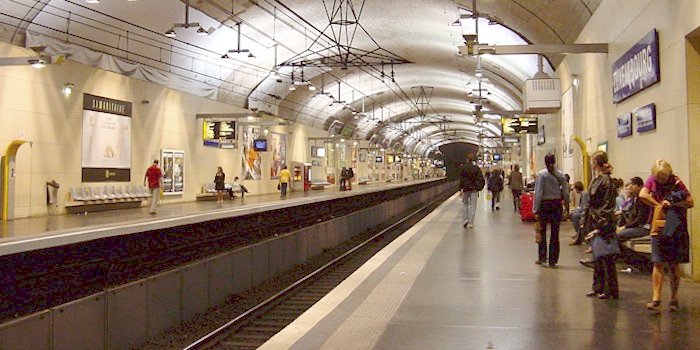 The RER Luxembourg station platform, photo Wikimedia
The RER Luxembourg station platform, photo Wikimedia
Line 10 is an important Metro route that connects the Latin Quarter to the rest of Paris. It runs from the far west in Boulogne-Pont de Saint Cloud, through the center of Paris and continues to its furthest eastern destination of Gare d'Austerlitz. It stops in the Latin Quarter at Cluny-La Sorbonne , Maubert-Mutualité, Cardinal Lemoine, and Jussieu stations.
The longest Metro line in Paris, Line 7, crosses the city north to south in a curved path from Mairie d'Ivry in the north to Villejuif-Louis Aragon in the south. It stops in the Latin Quarter at Place Monge, Jussieu and Censier/Daubenton stations. Finally, at station Saint-Michel Notre-Dame you can catch Metro line 4, and RER B & C.
![]()
The Best Evenings in Paris
|
Dinner & Cabaret at the Moulin Rouge |
VIP Dinner Cruise with Bateaux Parisiens |
|
Dinner & Cabaret at the Moulin Rouge |
21. Fromagerie Androuet – Depuis 1909
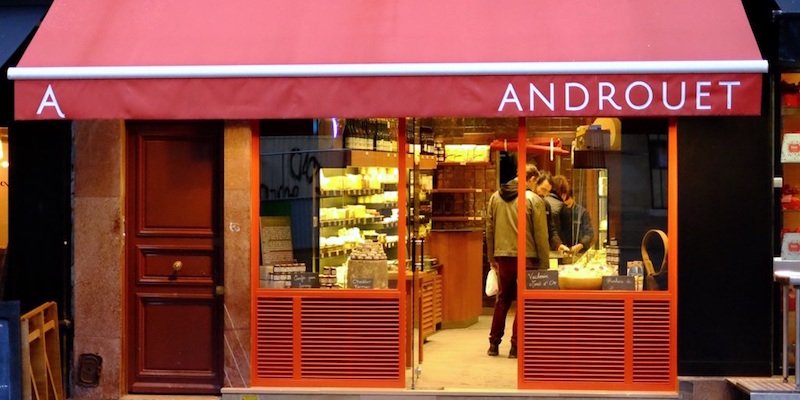 Fromagerie Androuet on Rue Mouffetard
Fromagerie Androuet on Rue Mouffetard
It's one of the leading fromageries of Paris, and with well over 200 cheese shops in the city to choose from, that's high praise. There are several Androuet locations in Paris — in the 7th, 14th, 15th and 16th — but the one on Rue Mouffetard holds a special place in our hearts. Come to sample and to buy some of the hundreds of cheeses on offer, then step back to admire the beautifully painted exterior of the building.
- 134 rue Mouffetard
- Website…
22. La Tour d'Argent
This place is the stuff of culinary legend. La Tour d'Argent is one of the most famous restaurants in Paris and it has a long history — there has been a restaurant at this location since 1780. The "silver tower" of the restaurant's name was built on this spot in 1582. The Terrail family have owned it since 1912 and they held three Michelin stars for an amazing 63 continuous years — from 1933 to 1996. The restaurant still retains one Michelin star today.
La Tour d'Argent is famous for its duck, first roasted, then pressed in an authentic steel duck press. The juices are used to make a memorable sauce. Each duck is numbered (the millionth duck was ordered in 2003) and are sourced from Maison Burgaud in Challans in southwest France. Franklin D. Roosevelt dined on duck #203,728. Come for the duck and be dazzled by views of Notre Dame Cathedral and the Seine River. By the way, when the flag is flying over La Tour d'Argent it means that a member of the Terrail family is present on site.
- 15 Quai de la Tournelle, 75005
- Website…
![]()
Delicious Activities in the Marais
|
Marais Food & Wine Tour |
Cheese & Wine Tasting in a Paris Cellar |
|
Cheese & Wine Tasting in a Paris Cellar |
23. Beaucoup des Églises !
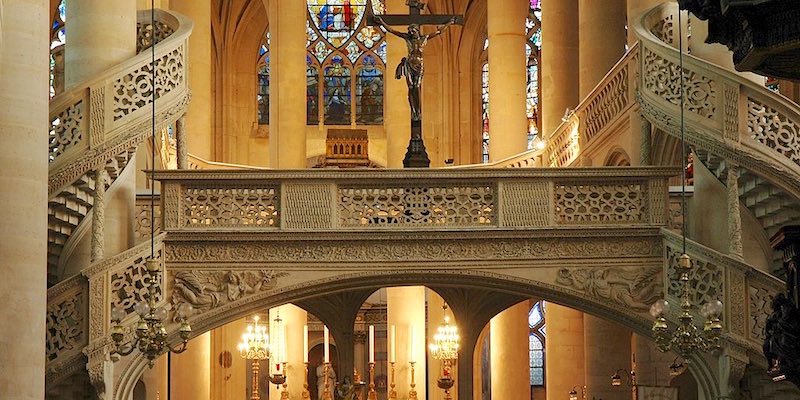 Saint-Etienne-du-Mont, photo Wikimedia
Saint-Etienne-du-Mont, photo Wikimedia
Four historic churches dominate the skyline of the Latin Quarter — Saint-Severin, Saint-Etienne-du-Mont, Saint-Julien-le-Pauvre, and Saint-Médard.
SAINT-ETIENNE-DU-MONT
Closest to the Pantheon is Saint-Etienne-du-Mont, the church that holds the shrine to the patron saint of Paris, St Genevieve. Like many historical structures in the city, Saint Etienne has had numerous incarnations since it was built in the 6th century. The current version and the bell tower date from 1624. For film lovers, you'll recognize the exterior staircase from Woody Allen's Midnight in Paris. It's also where you'll find the last jube in Paris — sort of a bridged gallery that separates the nave of the church from the choir — and this one is a sculpted marvel, as pictured above.
EGLISE SAINT-MEDARD
Originally built in the seventh century, Eglise Saint-Medard was destroyed by the Vikings 200 years later. Over the centuries it's had its fair share of renovation; the last major work was done in the 1700s. Saint-Medard is a charming and delightful place to end your tour of Rue Mouffetard (see point #9). Inside this Paris hidden gem are art treasures; you can see paintings by Philippe de Champaigne (1602 – 1674), Jean-Antoine Watteau (1684 – 1721), a Gobelins tapestry, and stained glass from the sixteenth century.
SAINT-JULIEN-LE-PAUVRE
Although it wasn't completed until the 13th century, the construction of Eglise Saint-Julien-le-Pauvre started the same time as Notre Dame cathedral in 1165. Just steps away from the Musée National du Moyen Age, it's been a Greek Catholic parish since 1899.
EGLISE ST SEVERIN
Eglise St Severin features gargoyles, flying buttresses and the oldest bells in Paris, cast in 1412. It is, in fact, the oldest church on the Left Bank, begun during the first half of the fifth century. Today there are occasional classical music concerts performed here.
The Best Markets in the Latin Quarter
- RUE MOUFFETARD
Every day except Monday and half-day Sunday. - MAUBERT
Place Maubert
Tuesday & Thursday, 7:00 AM to 2:30 PM; Saturday 7:00 AM to 3:00 PM - MONGE
Place Monge
Wednesday & Friday 7:00 AM to 2:30 PM; Sunday 7:00 AM to 3:00 PM - PORT-ROYAL
Along Val de Grace Hospital, on Boulevard Port Royal
Tuesday & Thursday, 7:00 AM to 2:30 PM; Saturday 7:00 AM to 3:00 PM
![]()
Find Hotel Deals for Your Dates in France
Check with Booking.com to find today's sale prices on hotel rooms in every village & city in France. Save 20% to 30%… or even more! |
Booking.Com France Hotel Deals |
Find Hotel Deals for Your Dates in France
Booking.Com France Hotel Deals |
Latin Quarter Facts & Fancies
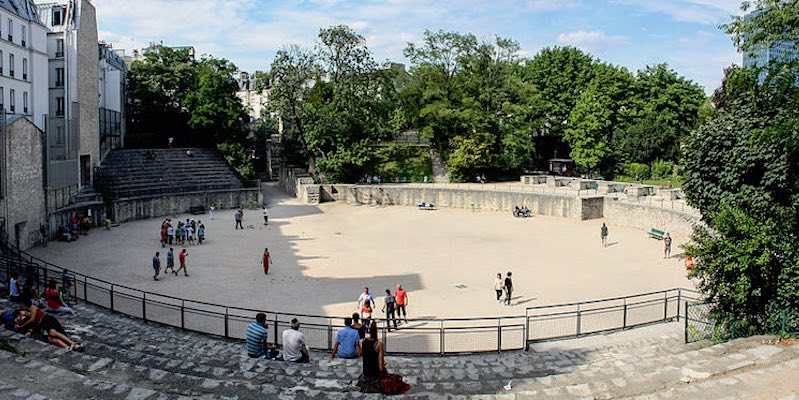 Arene de Lutece, the Roman stadium, photo Wikimedia by shadowgate
Arene de Lutece, the Roman stadium, photo Wikimedia by shadowgate
- The Latin Quarter is the the oldest district in Paris. Built by the Romans, it began as a village called Lutetia.
- The Arene de Lutece, the ancient stadium of Lutetia, was built by the Romans to accommodate 17,000 spectators. Victor Hugo fought hard to protect it from the Haussmann renovations of Paris of the mid-19th century. Final score — Hugo one, Haussmann zero. Today, children like to play soccer here. Hotel Monge (rated "Superb-Plus by us), abuts the ancient Roman stadium.
- The Pantheon is perfectly positioned on Montagne Sainte-Genevieve to overlook much of the Latin Quarter. It's an ideal starting point for a walk into either the Latin Quarter or towards Jardin du Luxembourg in the 6th, carrying on to Saint-Germain-des-Prés.
- Who's who at the Pantheon. Victor Hugo and Marie Curie are interred here along with Pierre Curie, Alexandre Dumas, Voltaire, Emile Zola, and resistance fighter Jean Moulin.
- Next to the Pantheon is the Sainte Genevieve Library, the world's first independent public library.
- The ancient Rue de la Huchette in the Latin Quarter, close to the Seine is today filled with tacky souvenir shops and the worst of international junk foods. Just walk on by!
- One of the narrowest streets in Paris is a passage called Rue du Chat qui Peche (the street of the fishing cat) with a width of 1.8 meters (5'10") — although we swear if feels narrower than that when you're walking it. It's found just off 14 Rue de la Huchette.
- Le Jardin d l'Ecole Normal Superieure is a pleasant little courtyard garden with a small pond found at 45 Rue d'Ulm, south of the Pantheon. It's open to the public during school hours.
- Salvador Dali's sundial. On the side of an otherwise unassuming building at 27 Rue Saint-Jacques (a little way behind Shakespeare & Co) is an astonishing sundial created by Dali in 1968. It depicts the head of a woman in the shape of the scallop shell.
Paris Planning Guides
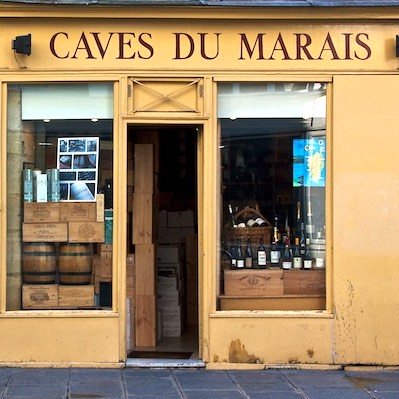 Guide to the Marais
Guide to the Marais |
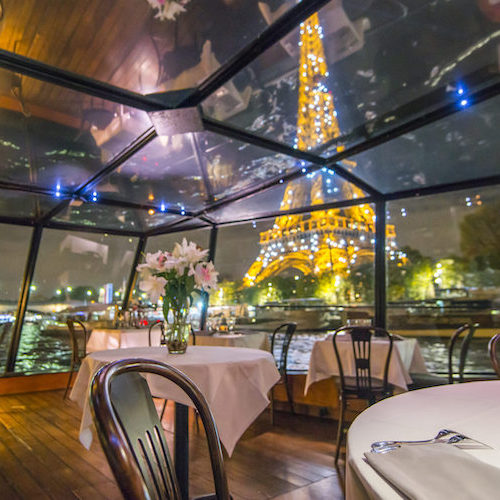 Glorious Dinner Cruises
Glorious Dinner Cruises |
 VIP to Champagne
VIP to Champagne |
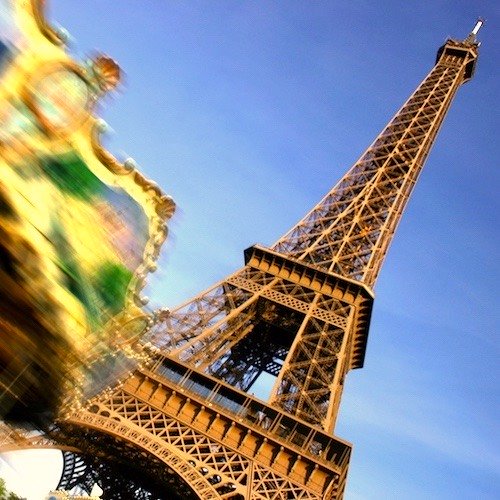 Skip the Tower Lines
Skip the Tower Lines |
